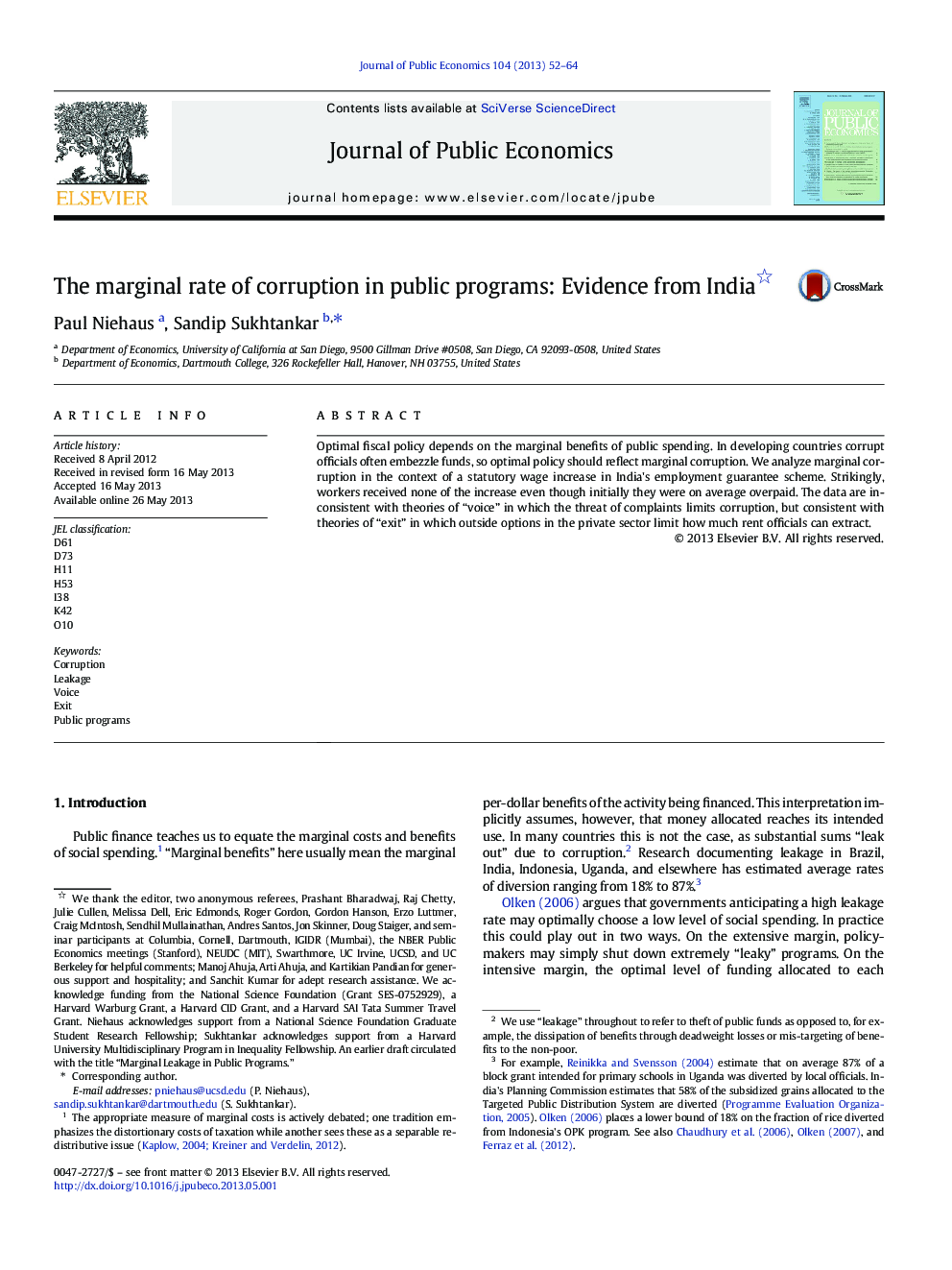| Article ID | Journal | Published Year | Pages | File Type |
|---|---|---|---|---|
| 969831 | Journal of Public Economics | 2013 | 13 Pages |
•We analyze how corruption changes after a wage increase in India's workfare scheme.•Before the wage change workers were on average paid appropriately.•However, workers received none of the wage increase.•Results do not support theories in which the threat of complaints limits corruption.•The data are consistent with theories in which corruption undoes price interventions.
Optimal fiscal policy depends on the marginal benefits of public spending. In developing countries corrupt officials often embezzle funds, so optimal policy should reflect marginal corruption. We analyze marginal corruption in the context of a statutory wage increase in India's employment guarantee scheme. Strikingly, workers received none of the increase even though initially they were on average overpaid. The data are inconsistent with theories of “voice” in which the threat of complaints limits corruption, but consistent with theories of “exit” in which outside options in the private sector limit how much rent officials can extract.
